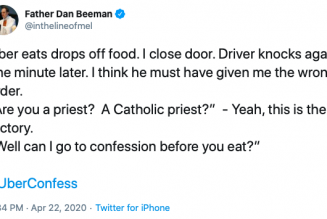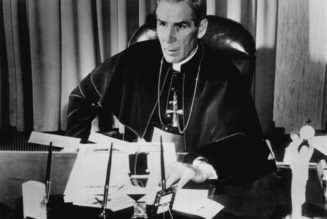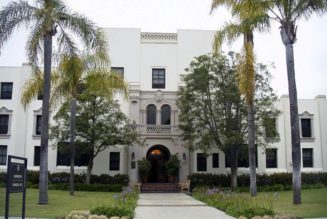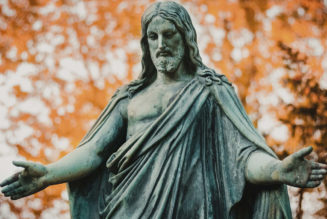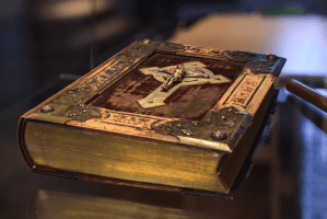ROME – This week voters in New Hampshire will head to the polls, taking part in what has long been the premier proving ground in American politics. A disappointing performance in the New Hampshire primary can spell the premature end of a presidential campaign, while a better-than-expected showing can propel a previously second-tier contender to the front of the pack.
While all analogies are inexact, there’s a sense in which 70-year-old Dutch Cardinal Wim Eijk may have had a “New Hampshire moment” this week.
It came not at the ballot box, but with a carefully worded response from the Dutch bishops to Fiducia Supplicans, the controversial Vatican declaration on non-liturgical blessings of same-sex unions, which managed to strike a clearly contrasting note without veering into open dissent.
Up to this point, the consensus among most Vatican-watchers had been that the prohibitive favorite among conservatives for the next pope is Cardinal Péter Erdő of Budapest, 71, a gifted canon lawyer who’s served as the Primate of Hungary since 2002, winning high marks as a strong leader both domestically and in the global Church. (Among other things, Erdő was the relator, or chairman, of the two ultra-contentious Synods of Bishops on the Family in 2014 and 2015.)
Heretofore, Eijk, a physician who specialized in internal medicine before pursuing the priesthood, usually would be mentioned as a “B list” conservative alternative. In part, that’s because few observers consider the hyper-secular Netherlands as a role model for the universal Church; in part, it’s because Eijk may have struck some center-right Catholics, i.e., moderates who lean only slightly to the right, as a bit too ideologically extreme.
In the wake of the statement on Fiducia, however, the Dutch prelate seems likely to get a second look among conservatives seeking a candidate who would lead the church in a different direction, but without too much ecclesiastical whiplash.
Before proceeding, two caveats.
First, the Jan. 16 statement wasn’t issued personally by Eijk but all 11 Catholic bishops of the Netherlands, and it may not be entirely fair to assign Eijk personal responsibility for a collective endeavor. Of course, that won’t stop most people from doing it anyway. That’s the problem with being the big fish in a small pond – everyone assumes that whatever happens in that pond, for good or ill, is because of you.
Second, there’s no reason to assume that Eijk’s motives for joining the statement were political, and certainly no reason to believe that it was designed to boost his stock as a papabile, meaning a candidate to be the next pope. Yet everything a cardinal does inevitably carries such political subtext, whether intended or not. That’s especially true the older and more health-challenged a pope becomes, when thoughts inevitably turn to what might come next.
In terms of why the Jan. 16 statement might entice conservative Catholics to take a new look at Eijk, it’s largely because of the document’s balance of restraint and clarity.
To begin with, the entire statement is just 292 words long in English translation, illustrating something copy-editors have tried to get across to prolix young authors for generations: To wit, that you don’t always need a lot of words in order to say a great deal.
Notably, there’s no criticism of Pope Francis or Argentine Cardinal Víctor Manuel Fernández, the prefect of the Vatican’s Dicastery for the Doctrine of the Faith that issued Fiducia Supplicans, and no use of incendiary terms such as “heresy”, “error” or “apostasy.”
Indeed, there’s no explicit repudiation of Fiducia at all, and the bishops actually take pains to declare that “with Pope Francis,” they want to “underline the pastoral importance of closeness and accompaniment.”
Yet at the same time, there’s no mistaking that the bishops strike a different note on the critically important question of who, exactly, would be the object of the non-liturgical blessings envisioned by Fiducia Supplicans. The Vatican document refers repeatedly to a “couple” and “couples” receiving such blessings, but the Dutch statement refers only to individuals, carefully employing the third person singular (“he/she” and “his/her”) in order to underscore the point.
“This makes it clear in the wording chosen that this is not a blessing or a confirmation of an irregular relationship and also avoids confusion with marriage, which, according to the Catholic Church, can only be between a man and a woman,” the statement says.
In other words, the Dutch bishops have broken with the western European pack in not issuing enthusiastic endorsements of Fiducia Supplicans, but they have not joined the chorus of open critics either. Instead, they have taken a measured middle path.
Such discretion is not because there aren’t forces in the small Dutch conference willing to go further. Auxiliary Bishop Rob Mutsaerts of ‘s-Hertogenbosch, for instance, has publicly called Fiducia a “cowardly” document that amounts to “a deliberate modification of what is sin.”
In that context, the fact that the Dutch bishops collectively produced a prudent but yet still forceful statement likely will be credited to Eijk’s influence.
Up to this point, there had been some question about whether Eijk might be a touch far to the right to be given serious consideration. In the wake of Amoris Laetitia in 2016, he was among bishops calling on the pope to “clarify” his teaching on communion for divorced and remarried Catholics, calling it a “source of confusion.” In 2018, Eijk publicly chastised Francis for failing to rein in the German bishops’ conference on the question of allowing Protestants to receive communion, writing that “by failing to create clarity, great confusion is created among the faithful and the unity of the Church is endangered.”
Eijk even closed that essay by invoking the apocalyptic scenario of the Church’s “ultimate trial,” in which people will be offered “an apparent solution to their problems at the price of apostasy from the truth.”
Those moments, combined with a previous episode in 2014 when Eijk was perceived as blocking a possible visit by Francis to Amsterdam (a claim the Dutch bishops conference denied, but it lingered anyway), have fueled an impression in some quarters that Eijk is part of the more vociferous anti-Francis brigade, and hence his election might be seen as too jarring a course change, or too explicit a repudiation of the previous pope.
Now, however, in light of the diplomatic way in which the Dutch church has responded to Fiducia, especially in the context of such overheated and acerbic reactions in other quarters, those impressions of Eijk may be reframed.
Whether that will be enough to turn him into a serious contender remains to be seen, especially since there’s no indication right now that Francis is nearing the end of the road – in a recent interview, he pointedly took the question of resignation off the table, at least for the moment.
Nevertheless, what can be said is that in conservative circles right now, Eijk is getting a closer look – and in politics, sometimes that’s all it takes.

